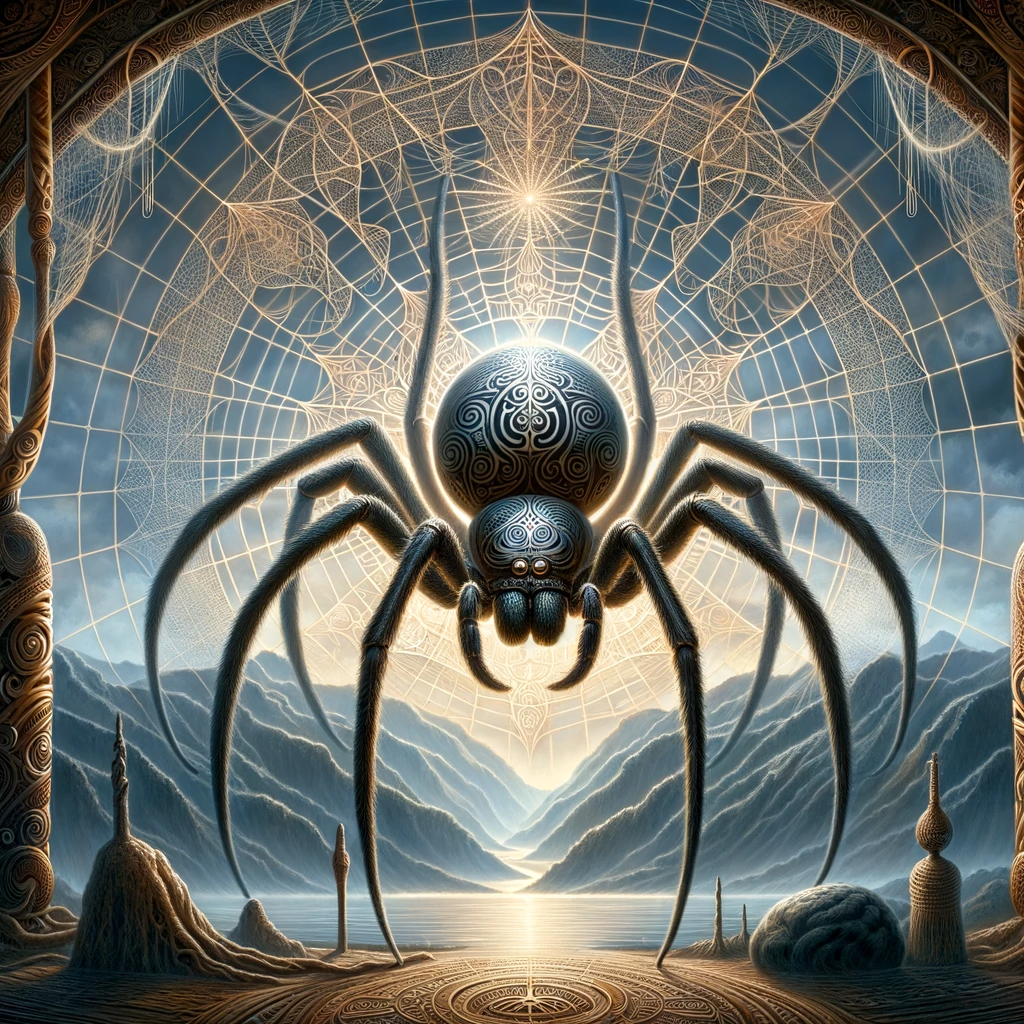
Rongo, the Spider Deity of Maori Mythology, is a fascinating and lesser-known figure in the rich tapestry of Maori lore. Rooted deeply in the spiritual and cultural heritage of the Maori people of New Zealand, Rongo presents a unique blend of natural reverence and mythological symbolism.
Origins and Significance
Rongo is not a mainstream deity in Maori mythology but represents an intriguing blend of natural elements and spiritual beliefs. In Maori culture, spiders are often seen as weavers of fate and destiny, a common theme in many indigenous mythologies. This belief stems from the spider’s ability to weave intricate webs, which symbolizes the interconnectivity of life and the spiritual world.
Depiction and Symbolism
Rongo is typically depicted as a spider with distinctive features that are deeply symbolic in Maori culture. The eight legs of the spider are often seen as pathways to the spiritual realm, representing the multiple ways in which the physical and spiritual worlds intertwine. The spider’s web is also a powerful symbol in Rongo’s imagery, representing creation, ingenuity, and the intricate tapestry of life.
Cultural Impact and Worship
In traditional Maori culture, Rongo was revered as a guardian of knowledge and a symbol of interconnectedness. Worship of Rongo involved rituals and offerings that were aimed at gaining wisdom and understanding the deeper connections of the universe. The respect for spiders in Maori culture is partly attributed to the influence of Rongo, leading to a general attitude of reverence towards these creatures.
Modern Perspectives
In contemporary times, Rongo’s influence is seen more in the preservation of Maori culture and the rekindling of interest in indigenous beliefs and practices. Rongo serves as a reminder of the importance of respecting nature and understanding the deeper spiritual connections that bind all living things.
Conclusion
Rongo, the Spider Deity, is a testament to the rich and diverse mythology of the Maori people. It encapsulates the essence of Maori spirituality, which sees the natural world as an integral part of the human experience, interconnected and imbued with deeper meanings. As such, Rongo remains a significant, albeit less known, figure in the spiritual landscape of New Zealand’s indigenous culture.
